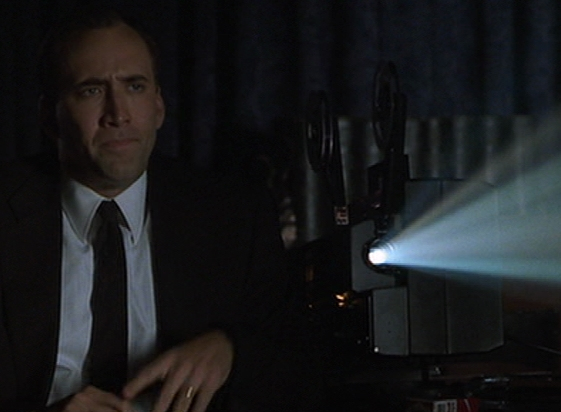Choosing a Script Service for your screenplay: “Those Who Teach” by Daniel Calvisi

Looking for a professional script doctor
or script service to teach you
how to write a screenplay
in the most professional, polished,
industry standard method?
Are you sick of wading through the hundreds of websites that offer “script services” or “movie script coaching?”
Think your screenplay deserves the best script doctoring and coaching you can find on the internet?
Did you hire a joker that took your money and gave you template notes or sub-standard coverage?
Are you wondering why the flashy website for a script doctor or screenplay service doesn’t have a bio page or list any credentials?
Did you pay good money to enter your script in yet another contest only to place in the “Top 25%” (whatever that means) and find out that the volunteer judges chose a boring screenplay that will never get made in Hollywood as the winner ?
Are your friends and writing group members not providing the level of detail and story solutions to truly help you take your work to the next level?
Choosing the right script service
can be a daunting task.
But it’s a crucial decision for
those looking for help with
how to write a screenplay.
A screenplay that will blow away Readers.
I should know, as I’ve been working professionally with screenplays and writers for almost fifteen years. I’ve worked as a Senior Story Analyst for major movie studios and production companies and I’ve seen the quality of writing at this level.
I was paid to give a Pass, Consider or Recommend to scripts and books being submitted by agents, managers and major stars.
In this article, I break down the basics of script services and offer some little-known tips to help you find the best script doctor for you. I will discuss…
- The three main types of Screenplay Coach/Consultants
- The inherent problems with Coverage services
- Writers vs. Teachers
- The “Triple Threat” of Screenwriting Coaches
- What I can offer YOU and more
PART I: Writers vs. Teachers
Those who can teach, don’t need to DO…or do they?
On every screenwriting message board you’ll see an angry post from a frustrated writer telling you that the only consultants you can trust are those that have sold scripts in Hollywood. In other words, “Trust those who do, not those who just teach.”
But what we should really say is “Trust those who teach well.”
I don’t know about you, but when I look back at the great teachers I’ve had over the years, they weren’t hugely successful practitioners of their craft. My favorite English teacher in high school was not a published novelist. My best Little League baseball coach, the one who stressed the fundamentals and used positive affirmation rather than cold criticism, never played in the Major Leagues. My talented and inspirational theater director was never a regular on a network series.
What they knew how to do best was to TEACH.
They knew how to analyze a student’s work and provide the right exercises and suggestions to guide them to the next level.
They had spent years not only practicing the art of teaching, but studying their chosen subject in detail and at great length to build a personal library of examples to illustrate their lessons.
They could teach us how to do it. That’s all we really want, right?
The difference between a teacher and a practitioner is that the teacher knows how to articulate to another person how to do it, while the practitioner may only know how THEY do it.
Which is not to say there are not bad teachers out there. There are tons of them. I’m just saying that I’ll take a good teacher over a practitioner with no teaching experience any day.
It takes years of teaching and tutoring to build up the experience, the skills and the vocabulary needed to really coach a pupil to improve their craft.
In fact, I jumped into teaching at age 25, launching a class at the Learning Annex in New York City with only my experience as a Story Analyst to guide me. Looking back, those first few classes were pretty rough.
But I got better.
And I learned more about screenwriting than I ever could have by only writing (I’ve written 12 screenplays, 3 of them on assignment, none produced as of yet). You can write fifty, but if they’re written in a vacuum — and you’re not reading the work of professionals, then you’re never going to improve.
In fact, it’s not just reading, I believe that doing written analysis of movies, TV shows and novels, along with teaching the subject, are just as valuable as actual writing to learn the craft.
The produced screenwriter worked for years on their own craft and focused like a bullet on marketing themselves to get to where they’ve got…but unless they also spent years learning how to TEACH the lessons they learned during that process, then I don’t think they’re going to be the best person to coach YOU to success.
Plus, I highly doubt they’ve read as many scripts as an industry vet or a teacher. And if they can match my number, I guarantee they haven’t read as many BAD scripts, which is one of the best learning tools around!
I’ve heard too many times from clients that they used a bad service or worked with an unhelpful consultant. In many cases, they come to me AFTER they’ve felt used and abused by the fly-by-night hack who only charged $45 and gave them notes worth far less.
So I’d like to offer a helpful primer to help you with this decision. In the next section, we’re going to look at the three main types of screenplay consultants that you can hire to analyze your work.
And if you’re anxious to check out my credentials now, then feel free to take a look at these pages…
My Bio | My Credentials |Endorsement in Script Magazine:






Leave a Reply
Want to join the discussion?Feel free to contribute!